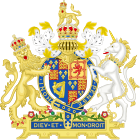| Act of Parliament | |
 | |
| Long title | An Act concerning Monopolies and Dispensations with penall Lawes and the Forfeyture thereof.[2] |
|---|---|
| Citation | 21 Jas. 1. c. 3 |
| Introduced by | Sir Edward Coke |
| Territorial extent | England and Wales |
| Dates | |
| Royal assent | 29 May 1624 |
| Commencement | 12 February 1623/4 |
| Other legislation | |
| Amended by | |
Status: Partially repealed | |
| Text of the Statute of Monopolies 1623 as in force today (including any amendments) within the United Kingdom, from legislation.gov.uk. | |
The Statute of Monopolies[1] (21 Jas. 1. c. 3) was an act of the Parliament of England notable as the first statutory expression of English patent law. Patents evolved from letters patent, issued by the monarch to grant monopolies over particular industries to skilled individuals with new techniques. Originally intended to strengthen England's economy by making it self-sufficient and promoting new industries, the system gradually became seen as a way to raise money (through charging patent-holders) without having to incur the public unpopularity of a tax. Elizabeth I particularly used the system extensively, issuing patents for common commodities such as starch and salt. Unrest eventually persuaded her to turn the administration of patents over to the common law courts, but her successor, James I, used it even more. Despite a committee established to investigate grievances and excesses, Parliament made several efforts to further curtail the monarch's power. The result was the Statute of Monopolies, passed on 29 May 1624.
The statute repealed some past and future patents and monopolies but preserved exceptions: one of these was for patents for novel inventions. Seen as a key moment in the evolution of patent law, the statute has also been described as "one of the landmarks in the transition of [England's] economy from the feudal to the capitalist".[3] Even with the statute in force, it took over a century for a comprehensive legal doctrine around patents to come into existence, and James I's successor Charles I regularly abused the patents system by ensuring that all cases relating to his actions were heard in conciliar courts, which he controlled. The English Civil War and the resulting English Restoration finally curtailed this system. The statute is still the basis for Australian law, and until the United Kingdom began following the European Patent Convention in 1977, was also a strong pillar of the United Kingdom's intellectual property law.
- ^ a b The citation of this act by this short title was authorised by section 5 of, and schedule 2 to, the Statute Law Revision Act 1948. Due to the repeal of those provisions, it is now authorised by section 19(2) of the Interpretation Act 1978.
- ^ These words are printed against this act in the second column of schedule 2 to the Statute Law Revision Act 1948, which is headed "Title".
- ^ Cite error: The named reference
blox157was invoked but never defined (see the help page).
